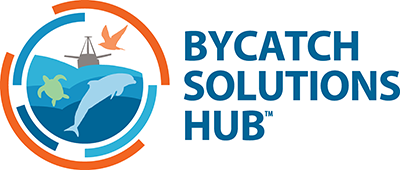Key Takeaways
- Entanglement from pot and trap buoy lines is considered “one of the greatest threats to North Atlantic right whales” according to NOAA. Yet some fisheries, like black sea bass, rely on pot gear to catch fish.
- Black Sea Bass fishers who participated in fishing trials which removed the buoy lines from what water had an overall favorable experience. They felt that gear was less likely to move or become lost once deployed.
- In 2025, to support use of on-demand gear, the South Atlantic Fishery Management Council approved on-demand gear as an allowable gear in the black sea bass fishery.
- These measures are the first step to potentially opening the right whale closed area to fishermen using on-demand gear
In the Fall, each year endangered North Atlantic right whales will migrate from waters off the northeastern United States to their calving grounds off the Carolinas, Georgia and northeastern Florida. This migration happens at the same time as the South Atlantic black sea bass fishery in the same area is the most productive. The fishery is small by global standards but there is a pot gear sector with 33 vessels that is important to some communities and for greater market stability.
Entanglement from fixed fishing gear like the buoy lines attached to trap and pot gear are considered “one of the greatest threats to North Atlantic right whales” according to NOAA. Yet some fisheries, like black sea bass, rely on pot gear to catch fish efficiently and with little bycatch. While most of the time fishing gear that whales become entangled in is not identifiable to the fishery, there was an instance years ago where there was a strong suspicion the gear attached to an entangled whale was black sea bass pot gear.
Due to the threat of right whale entanglement, the South Atlantic Fishery Management Council, which manages the black sea bass fishery from Cape Hatteras, North Carolina through Key West, Florida implemented two seasonal closures for the black sea bass pot fishery in areas known to be right whale calving grounds. These closures occur during the Fall and Winter months when the black sea bass pot fishermen prefer to operate and in an area that is closer to shore and allows for more safety.
In 2020, a group of black sea bass pot fishermen requested an experimental fishing (EFP) permit from NOAA to test on-demand gear for their fishery in hopes of re-gaining access to the right whale closed area in their productive months. Initially the gear was tested by a small group of fishermen outside of the closed area. Once it was clear that retrieval of the pots was successful the EFP was expanded to include fishermen from all four South Atlantic states and fishing with the on demand-gear was allowed inside the closures for the experiment.
Fishermen who participated in the EFP had an overall favorable experience with using the on-demand gear. They felt that gear was less likely to move or become lost once deployed and that rope management and use of the gear greatly improved over the course of the trial. They did find the time and effort to convert their traditional pots to on-demand gear was significant. Fishermen in the black sea bass fishery are limited to only 35 pots and many fish less, so while this may not be a barrier for this fishery, it’s worth noting that the time to convert gear in other trap/pot fisheries may be a larger barrier to acceptance. NOAA considered the EFP a “win-win for the whales and the fishery” providing for reduced to no risk of right whale entanglement and economic and safety advantages for fishermen.
The EFP expired in April of 2025. Without a permit for the EFP, on-demand gear would be illegal to use in the fishery based on the strict definition of gear that is allowed to harvest black sea bass. Additionally, the rules required very specific ways fishermen were required to stow their pot gear and lines on their vessel when transiting any closed or protected areas. These rules were not compatible with how on-demand gear needs to be stowed in order to use them efficiently once on the fishing grounds.
So, in 2025, wanting to support the further use of on-demand gear, the South Atlantic Fishery Management Council approved on-demand gear as an allowable gear in the black sea bass fishery and amended the rules for gear stowage to allow for on-demand gear to be ready for use when a vessel reaches the fishing grounds. These measures are the first step to potentially opening the right whale closed area to fishermen using on-demand gear which the Council will be considering along with a suite of black sea bass management options in 2025 and 2026.
